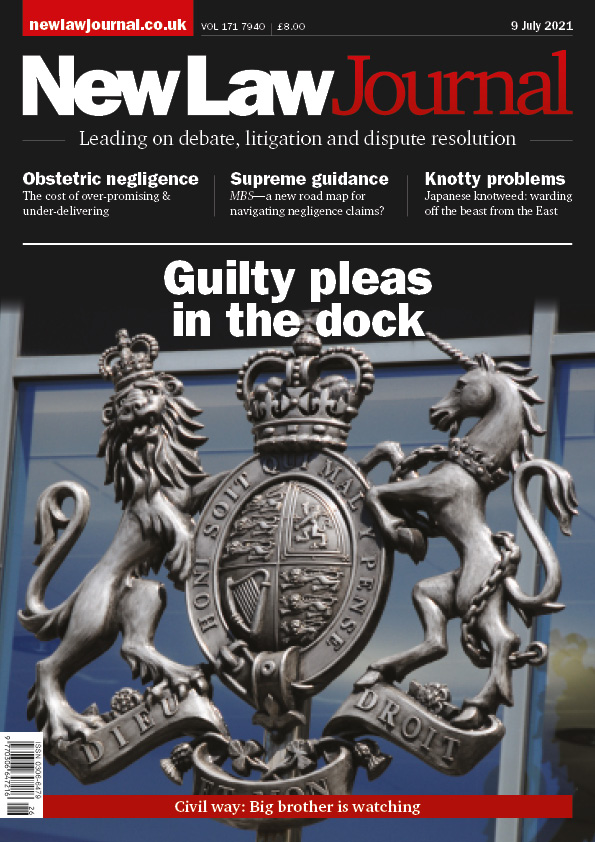THIS ISSUE

Veronica Cowan reports on the growing problem of the beast from the East
Individuals versus corporates: who shoulders the blame in bribery cases? Allison Clare QC examines the ‘adequate procedures’ defence
Cathál MacPartholán examines pre-charge bail: has the Policing and Crime Act 2017 reframed rather than reformed the problem?
Chris Bushell & Ceri Morgan examine the increasingly high bar for claims to extend the limitation period
Tom Hall provides a practical guide to capacity & the appointment of attorneys & deputies
David Renton reports on the real-world realities for those left on the verge of eviction
Decisions which lengthen sentences for no obvious reason will not help an already critical situation, as Martin Rackstraw reports
Obstetric negligence: Lorin Lakasing reports on the cost of over-promising & under-delivering
The judgment in MBS provides practitioners with a new road map for navigating negligence claims, as Andrew Burnette & Ben Hubble QC report
MOVERS & SHAKERS

Keystone Law—Milena Szuniewicz-Wenzel & Ian Hopkinson
International arbitration team strengthened by double partner hire

Coodes Solicitors—Pam Johns, Rachel Pearce & Bradley Kaine
Firm celebrates trio holding senior regional law society and junior lawyers division roles

Michelman Robinson—Sukhi Kaler
Partner joins commercial and business litigation team in London
NEWS
The government has pledged to ‘move fast’ to protect children from harm caused by artificial intelligence (AI) chatbots, and could impose limits on social media as early as the summer
All eyes will be on the Court of Appeal (or its YouTube livestream) next week as it sits to consider the controversial Mazur judgment
An NHS Foundation Trust breached a consultant’s contract by delegating an investigation into his knowledge of nurse Lucy Letby’s case
Draft guidance for schools on how to support gender-questioning pupils provides ‘more clarity’, but headteachers may still need legal advice, an education lawyer has said
Litigation funder Innsworth Capital, which funded behemoth opt-out action Merricks v Mastercard, can bring a judicial review, the High Court ruled last week







